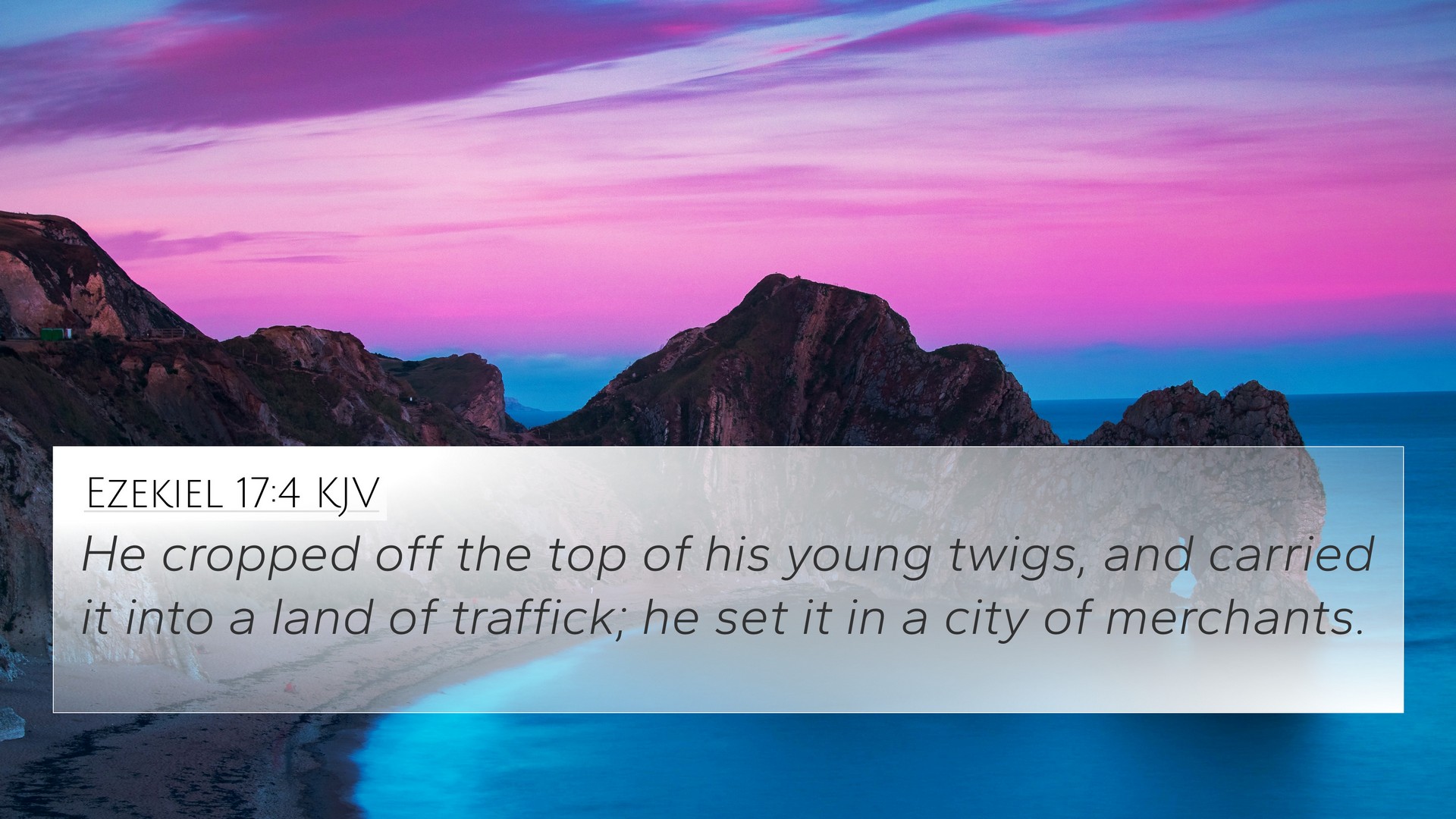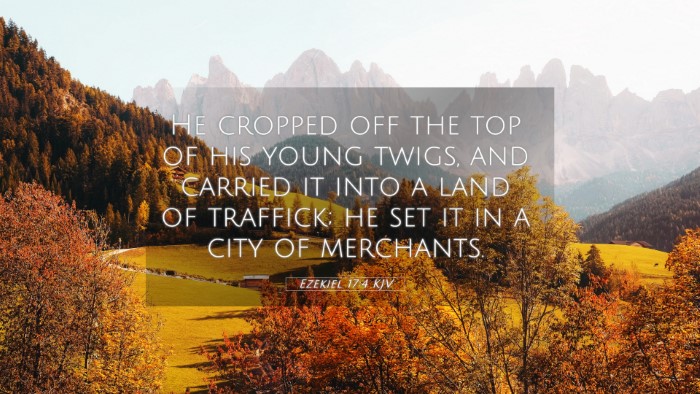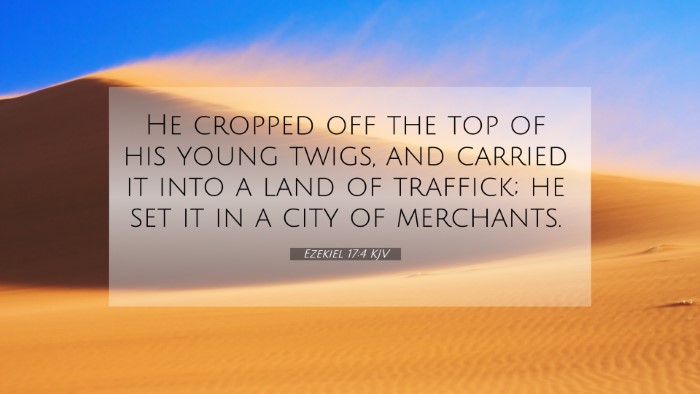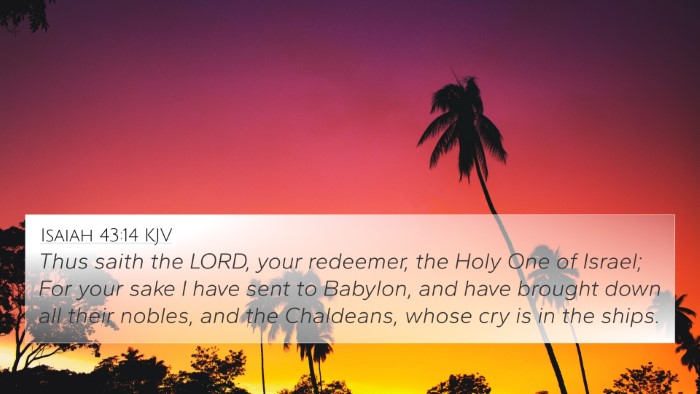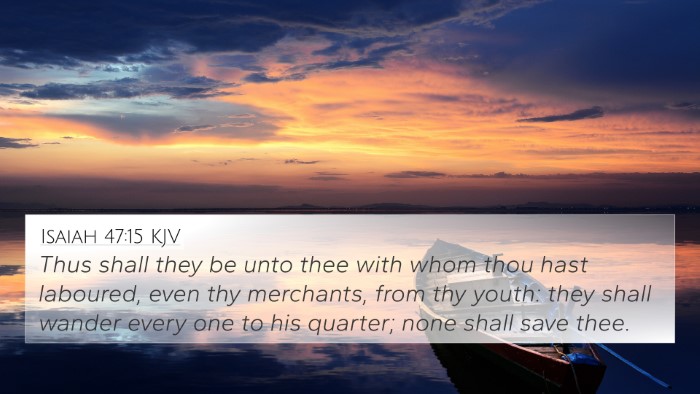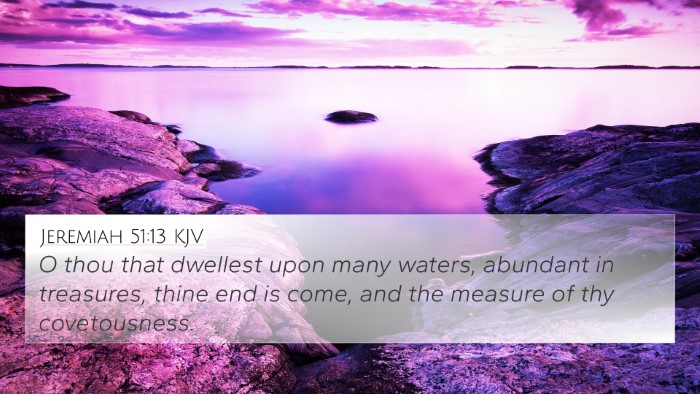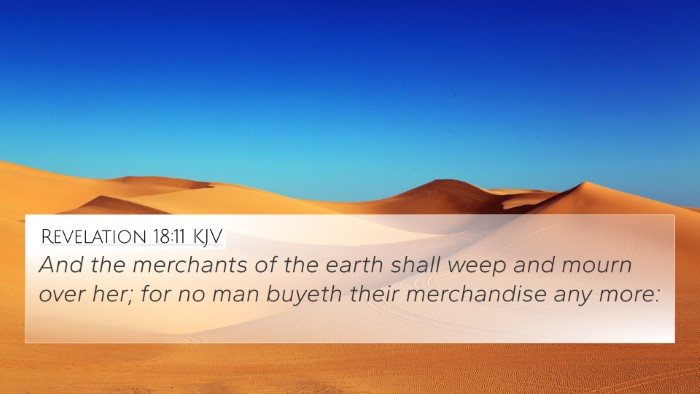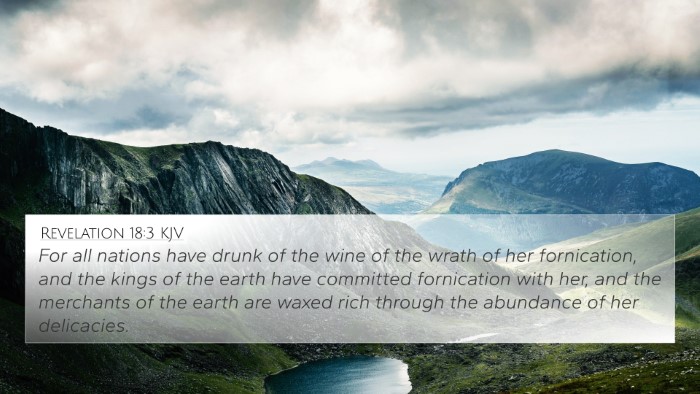Ezekiel 17:4 - Meaning and Interpretation
Bible Verse: Ezekiel 17:4
"He took of the seed of the land, and planted it in a fruitful field; he placed it by great waters, and set it as a willow tree."
Summary of Meaning
The verse is part of a parable that illustrates God's dealings with Israel, highlighting themes of growth, sovereignty, and the eventual fate of the chosen people. The imagery of planting and nurturing indicates God's desire to cultivate His people in favorable conditions.
Commentary Insights
-
Matthew Henry:
Henry emphasizes that the "seed of the land" signifies the remnant of Israel that God preserves amidst adversity. The fruitful field represents the land of promise where God's blessings flow, demonstrating His providence.
-
Albert Barnes:
Barnes interprets the "great waters" as the support and sustenance from God, symbolizing abundance and life giving to the nation. The imagery of the willow tree denotes flexibility and resilience, suggesting that Israel would grow strong despite trials.
-
Adam Clarke:
Clarke points out that this planting is a prophetic declaration about the future restoration of Israel. He notes the significance of the willow as a tree that thrives near water, signifying the blessings and nurturing that come from being in a right relationship with God.
Thematic Bible Verse Connections
This verse relates to several key themes in scripture:
- God's Sovereignty: God's control over the destiny of nations is evident in Ezekiel's imagery.
- Restoration and Hope: A message of hope prevails, indicating that despite their current situation, restoration is possible.
- Divine Nurturing: God's provision and care for His people are highlighted, signifying a capacity for growth.
Bible Cross-References
Here are 10 related Bible verses that enhance the understanding of Ezekiel 17:4:
- Isaiah 61:3: "To bestow on them a crown of beauty instead of ashes." This reflects themes of restoration.
- Psalms 1:3: "He shall be like a tree planted by the rivers of water." This suggests the importance of placement for growth.
- John 15:5: "I am the vine, you are the branches." This elaborates on the idea of connection and support in divine growth.
- Jeremiah 17:7-8: "Blessed is the man who trusts in the Lord." This verse reinforces the notion of relying on God for sustenance.
- Matthew 13:31-32: The parable of the mustard seed, emphasizing the growth of something small into significance.
- Romans 11:17: The illustration of wild olives being grafted in highlights God's continued work with Israel.
- Ezekiel 34:26: God's promise to bless His people abundantly, bringing forth a fruitful harvest.
- Isaiah 58:11: God will guide continually and satisfy the soul in drought; connecting to the sustenance imagery.
- 1 Peter 2:5: "You also, like living stones, are being built into a spiritual house." This phrase invites reflection on God's building a nation through His people.
- Revelation 22:1-2: The image of the river of life further elaborates on sustenance, growth, and the ultimate restoration of God's kingdom.
Tools for Bible Cross-Referencing
To study and understand the connections between Bible verses, several tools are invaluable:
- Bible Concordance: A helpful index for finding cross-references.
- Bible Cross-Reference Guide: Provides systematic connections across the text.
- Bible Study Materials: Enhance understanding through various commentaries and studies.
- Online Significant Resources: Websites and digital tools that help in finding linkages and deeper thematic explorations.
Conclusion
Ezekiel 17:4 serves as a profound metaphorical insight into God's relationship with His people, emphasizing His nurturing and restorative power. By exploring this verse and its connections, one begins to understand the rich tapestry of Biblical themes woven throughout scripture.
